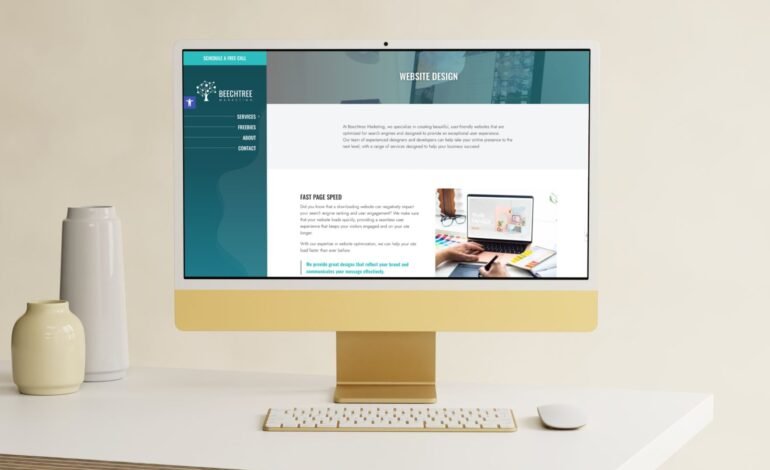
Businesses face a critical decision when it comes to marketing: build an in-house team or partner with a digital marketing agency. This choice impacts not only budget allocation but also overall marketing effectiveness and business growth. This article considers the hidden costs and benefits of both options, providing a comprehensive analysis to inform your decision.
Beyond the Budget: Unveiling the True Cost of Marketing Choices
The decision between in-house marketing and agency partnerships extends far beyond a simple comparison of salaries versus agency fees. It involves considering various factors such as expertise, scalability, technology costs, and long-term return on investment. By understanding these elements, businesses can make strategic choices that align with their goals and resources.
Direct Costs Comparison
Let’s begin with a detailed look at the most apparent costs:
| Cost Factor | In-House Marketing | Agency Partnership |
|---|---|---|
| Personnel | Salaries, benefits, bonuses | Retainer or project-based fees |
| Average Annual Cost | $250,000 – $500,000+ (for a small team) | $60,000 – $300,000+ |
| Team Composition | 1 Marketing Manager, 1-2 Specialists, 1 Content Creator | Access to full agency team |
| Cost Flexibility | Fixed costs, harder to adjust | Scalable based on needs |
While the annual costs might appear higher for in-house teams, it’s crucial to consider the breadth of expertise and scalability offered by agencies. In-house teams often require a minimum viable size to cover essential marketing functions, whereas agency partnerships can be more flexible in terms of resource allocation.
Hidden Costs of In-House Marketing
Recruitment and Training
Building an effective in-house team involves substantial upfront and ongoing investments:
- Recruitment fees: Typically 20-30% of the employee’s first-year salary. For a marketing manager earning $80,000, this could mean $16,000-$24,000 in recruitment costs alone.
- Onboarding and initial training: This can take 1-3 months, during which new hires are not fully productive. Factor in both the new employee’s salary during this period and the time spent by other team members on training.
- Ongoing professional development: Marketing evolves rapidly. Budget for conferences, workshops, and courses. Expect to spend $2,000-$5,000 per employee annually on professional development.
These expenses can accumulate to $20,000-$40,000 per employee in the first year, with ongoing annual costs of $5,000-$10,000 for training and development.
Technology and Tools
A robust marketing tech stack is essential for effective campaigns:
- Marketing automation software (e.g., HubSpot, Marketo): $12,000-$24,000/year
- Analytics platforms (e.g., Google Analytics 360): $12,500-$150,000/year
- Design and content creation tools (e.g., Adobe Creative Suite): $600-$1,200/year per user
- CRM systems (e.g., Salesforce): $1,500-$3,600/year per user
- Social media management tools: $1,200-$4,800/year
For a small team, these costs can easily reach $30,000-$100,000 annually. Larger teams or more complex marketing operations might see technology costs exceeding $200,000 per year.
Overhead Expenses
Often overlooked, these costs can significantly impact the total investment in an in-house team:
- Office space: In major cities, expect to pay $300-$1,000 per employee per month.
- Utilities and internet: Can add another $100-$200 per employee per month.
- Hardware (computers, phones, etc.): Initial setup costs of $1,500-$3,000 per employee, with refresh cycles every 3-4 years.
- Administrative support: Factor in a portion of HR, IT, and other support staff salaries.
These expenses typically add 20-30% on top of direct personnel costs. For a team with $300,000 in salaries, overhead could amount to an additional $60,000-$90,000 annually.
Hidden Benefits of Agency Partnerships
Access to Diverse Expertise
Agencies offer a breadth of specialized skills that would be costly to maintain in-house:
- Specialist access: SEO experts, PPC managers, content strategists, designers, data analysts, and more.
- Industry insights: Agencies work across various sectors, bringing best practices and innovative ideas.
- Continuous learning: Agency professionals stay updated on the latest trends and technologies as part of their job.
To replicate this level of diverse expertise in-house, you might need to hire 5-10 specialists, potentially costing $500,000-$1,000,000 in annual salaries alone.
Scalability and Flexibility
Agencies provide unparalleled adaptability:
- Resource allocation: Easily scale efforts up or down based on campaigns or seasonal needs.
- Quick pivots: Adapt strategies without the need for hiring or layoffs.
- Trial periods: Test new marketing channels or strategies without long-term commitments.
This flexibility can lead to more efficient budget utilization. For instance, you might allocate more resources to SEO one quarter and shift focus to paid advertising the next, without changing your core team or making hiring decisions.
Time and Productivity Gains
Outsourcing marketing can yield significant efficiency improvements:
- Focus on core activities: Leadership can concentrate on business strategy rather than managing marketing operations.
- Reduced management overhead: No need to oversee daily marketing tasks or handle team management issues.
- Faster implementation: Agencies can often launch campaigns quicker due to established processes and readily available resources.
While harder to quantify, these gains can be substantial. Consider the opportunity cost of a CEO spending 10 hours a week on marketing management versus focusing on business development or product innovation.
Long-Term Cost Considerations
When evaluating the financial implications over time, consider:
- ROI: Agencies often deliver better results due to their specialized expertise and resources. A study by Promethean Research found that companies working with agencies saw an average 15% improvement in marketing ROI compared to those with in-house teams.
- Opportunity Cost: Time spent building and managing an in-house team could be invested in other areas of your business. For a startup, this might mean faster product development or more time for fundraising.
- Risk Mitigation: Agencies spread the risk of marketing failures across multiple clients. If a campaign underperforms, you’re not left with unutilized full-time employees.
Case Study: Tech Startup Saves $200,000 Annually by Switching to Agency
A mid-sized tech startup initially built an in-house marketing team of five. After two years, their total marketing-related expenses were:
- Personnel costs: $450,000 (including salaries, benefits, and bonuses)
- Technology and tools: $75,000
- Overhead: $100,000
- Total: $625,000 per year
They switched to a full-service agency, which provided comprehensive marketing services for $425,000 annually. This move:
- Saved them $200,000 per year in direct costs
- Improved their marketing ROI by 30% due to the agency’s specialized expertise and efficient processes
- Freed up approximately 25 hours per week of executive time previously spent on marketing management
The company reinvested these savings and time into product development, accelerating their release cycle by 20%.
Making the Right Choice: Balancing Costs, Expertise, and Business Needs
While building an in-house marketing team might seem like a straightforward path to brand control and cultural alignment, partnering with an agency often proves more cost-effective and efficient in the long run. The hidden costs of recruitment, training, technology, and overhead can significantly inflate in-house team expenses. Conversely, agencies offer diverse expertise, scalability, and time savings that can drive better results at a lower overall cost.
Your choice ultimately depends on your specific business needs, budget, and long-term goals. Consider factors such as:
- Growth stage: Startups might benefit from agency flexibility, while larger corporations could justify comprehensive in-house teams.
- Industry complexity: Niche or highly technical industries might require specialized in-house knowledge.
- Marketing complexity: If your marketing needs are straightforward, a small in-house team might suffice. Complex, multi-channel strategies often benefit from agency expertise.
Don’t hesitate to experiment with hybrid models that combine in-house core competencies with agency specializations. Regularly reassess your marketing structure to ensure it continues to meet your evolving business needs and market conditions.
Remember, the most successful marketing strategies are those that align closely with business objectives, adapt to changing market dynamics, and efficiently utilize available resources. Whether you choose in-house, agency, or a hybrid approach, focus on creating a structure that enables agility, expertise, and continuous improvement in your marketing efforts.



